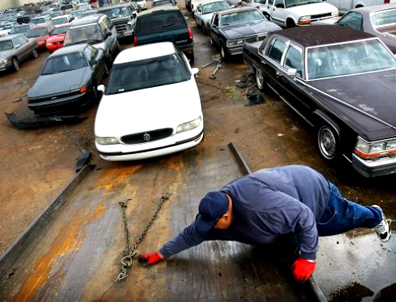
The Oakland Police Department has revised its impound policy so that motorists caught driving without a license won’t automatically lose their vehicles for 30 days. Police will allow such drivers, an overwhelming majority of them illegal immigrants, to park their cars in a legal spot or have a licensed driver remove the vehicle.
The law applies to vehicles impounded during traffic stops and at DUI checkpoint. In 2009, vehicle seizures generated an estimated $40 million in towing
fees and police fines from checkpoint seizures. The San Francisco Chronicle reported that Oakland towed 2,058 cars from unlicensed drivers, netting the city $288,120 in impound fines in 2009. At Oakland’s checkpoints in 2009, police seized 11 vehicles for every one drunken driving arrest, data from the California Office of Traffic Safety shows.
California law forbids illegal immigrants from obtaining driver’s licenses. The law stipulates that if police impound an unlicensed motorist’s vehicle, they are to hold the car for 30 days. Drivers of impounded vehicles must pay a $170 towing fee and $60 a day in storage fees.
Oakland police have been towing unlicensed drivers' cars for at least 20 years, according to the department. Under the old policy, many cars were put on 30-day holds, leaving owners with a $1,970 bill that owners had to pay in order to get their car back. The amount was often more than the value of the car.
Oakland’s policy change on car seizures brings it in line with other Bay Area cities. The San Francisco Police Department instituted a policy in late 2009 granting unlicensed drivers 20 minutes to find a licensed motorist to legally move the car. The city of Berkeley also adopted a similar policy in November. San Jose is currently introducing a similar policy.
The change in policy applies only to drivers who have never had a license because state law forbids it, and not to motorists whose driver's license has been suspended or allowed to expire. The new policy also does not apply to drivers who are putting the public at risk by participating in sideshows or speeding, have warrants or are driving while drunk or on drugs.
According to Lt. Mike Poirier, who gave a report at the Jan. 11 Public Safety meeting, first-time offenders receive a citation. If they agree to sign a waiver holding the city harmless for any damage, they can park their car on a city street and have someone pick it up later if there is no licensed passenger in the car. If someone is stopped more than once in a six-month period, the car will be towed.

